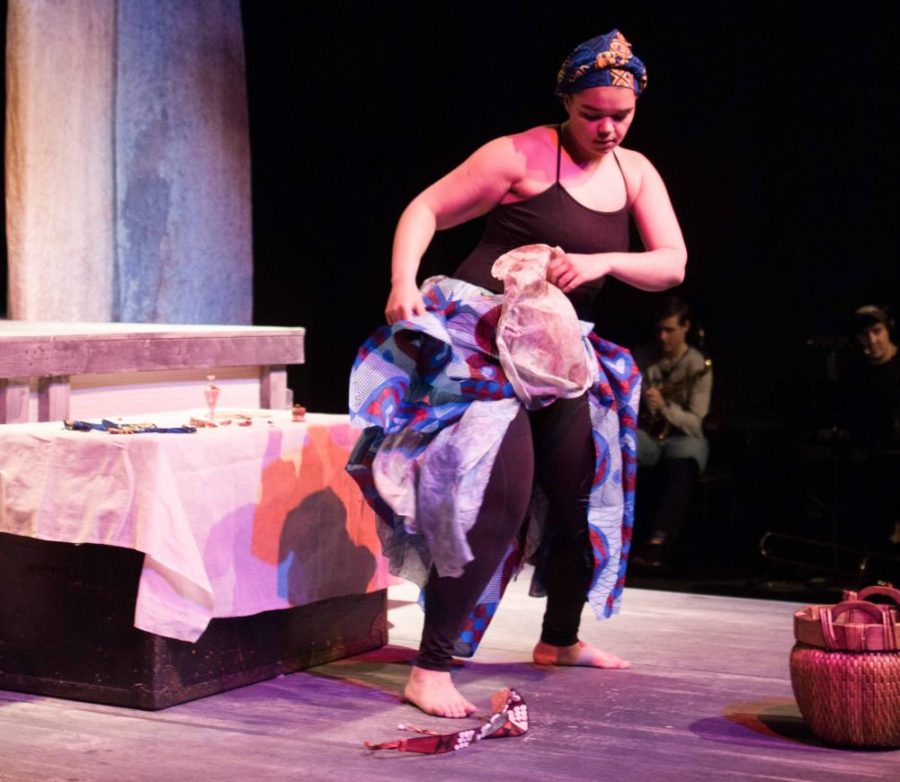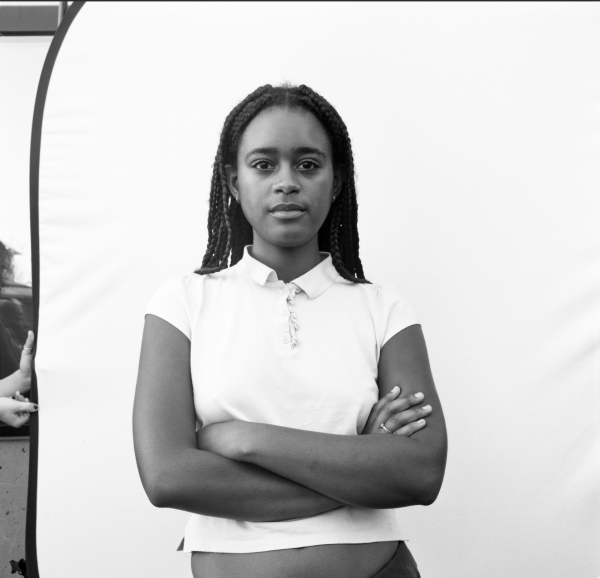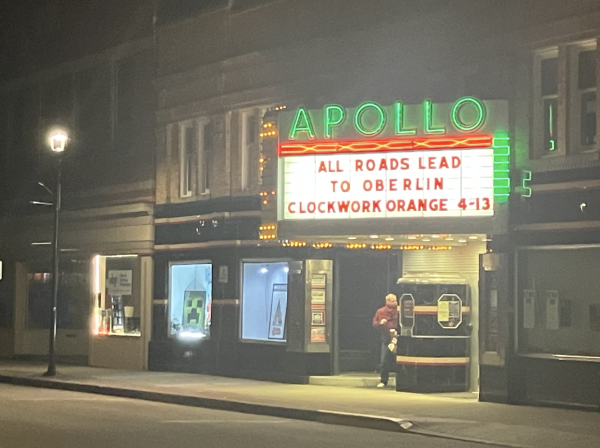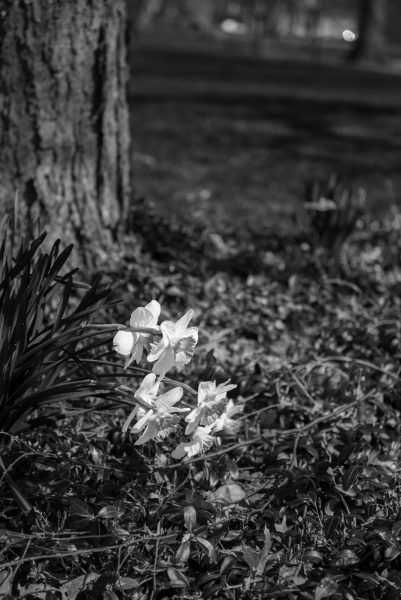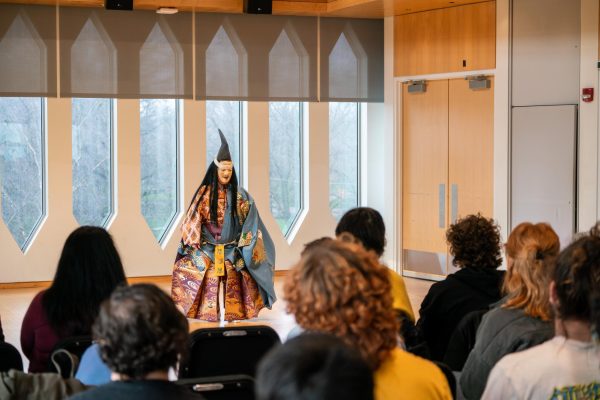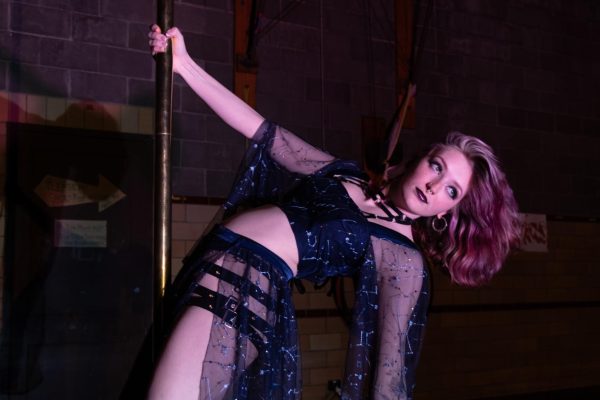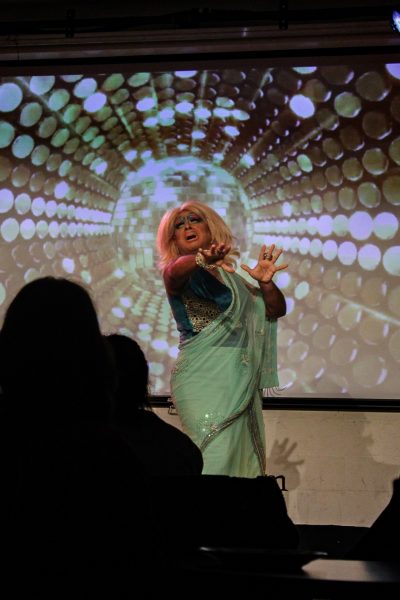“Tap Project” Explores History of Tap Dance
Chandler Browne’s one-woman show “The Tap Project” opened last night, showcasing the oral history of tap dancing.
Chandler Browne’s senior capstone The Tap Project is a documentary play about the oral history of tap dancing, especially in Black and American contexts. A part of the Posse Foundation’s “Posse 8” Program — outstanding, diverse high school students recruited to study at Oberlin — Browne’s one-woman show is mentored and directed by Professor of Africana Studies and Chair of Theater Caroline Jackson-Smith.
“Somewhere over the last two years, [Browne] decided that she would like to build this one-woman show based on the history of tap, her own talents, and built on interviews with many different tap artists,” Jackson-Smith said. “So she spent a year doing these interviews. Part of the show is her embodying the different people she has interviewed and that’s based on the work by Anna Deavere Smith.”
During Browne’s year of interviewing tap dancing professionals, she met several iconic dancers such as Savion Glover, Alexandria Brinae Ali Bradley, and Baakari Wilder.
“In the tap community, all these people are our heroes, but they’re also very tangible — I grew up taking classes with these people,” Browne said. “It’s not as distant in our community as it is in a lot of art forms. … That’s something that’s core in the ideology of tap dancing.”
The Tap Project features content from several primary sources. With a live band and over 12 tap performances embedded, the show is both an informative and an artistic masterpiece.
“I would say 95 percent of this show is a primary source,” Browne said. “For instance, there’s a monologue where I talk about master Juba, who was one of the first recorded tap dancers, and what he did in his life, and that was an article that was written by Thomas Low Nichols who was a newspaper editor in 1860-something.”
The show is also a timely extension of Black History Month and the theme of sankofa, remembering and learning from the past. The main topics of the performance are the creation of African ritual systems born through slavery; the invention of dance in Black communities, particularly tap dancing; and the misuse of Black art by oppressors and appropriators.
“The beginning is really about coming from Africa and African ritual systems through slavery and all the different ways that dance was invented within Black communities and also the way it was misused by oppressors and eventually by appropriators,” Jackson-Smith said. “As she moves through it, she goes through different time periods, [and] she’s showing a lot of footage of historic tap moments. She’s looking at the tension [within] minstrelsy, where Black culture was distorted and appropriated.”
Though Browne was trained in ballet and several other dance forms from early childhood, she did not find any of them fulfilling. For Browne, the history of a dance style is equally important as the dance itself. More than art for art’s sake, the struggle and story behind the movements in her performance represent a key aspect of her connection to tap dancing.
“Even in the small ways, ‘til today, we see minstrelsy and blackface that is still perpetuated, and people don’t even know where it’s coming from,” Browne said.
Other than professional training, Browne has also attended several tap festivals such as the Chicago Human Rhythm Project’s festival, D.C. Tap Festival, and the LA Tap Festival. She was, however, dissatisfied with the representations of tap dance that she experienced, leading to the conception of this project.
“Chandler is fantastic,” College junior and Tap Project sound designer Max Robinson said. “I think this is the only show I’ve seen in Oberlin, if at all, where by the end of the performance I can see the sweat on the actor. And that’s saying something, because she puts her heart and soul into every single piece.”
The show also features the vocals of College sophomore Jaris Owens, chief dramaturg for the project. Some highlights include “Brother Trying To Catch a Cab (On the East Side)” by Branford Marsalis and Dr. Harold Cromer’s iconic choreography to “Opus One” by Tommy Dorsey, a performance Browne performs in honor of Bill “Bojangles” Robinson.
“I like to say it is an education,” Jackson-Smith said. “It’s highly entertaining, it’s very unique, very fun in places but also with a serious intent. Chandler’s tapping is incredible. One of the things that is exciting for her is [that] she has always been connected to live music and tapping, but she’s also interested in looking at what happens with Beyoncé and tapping and where contemporary issues fall. So it’s very original, very entertaining, and at a high level of virtuosity.”
Performances of The Tap Project will run April 13 at 8 p.m., April 14 at 2 p.m. and 8 p.m., and April 15 at 2 p.m. in Kander Theater. Tickets can be purchased at the door for $5.


